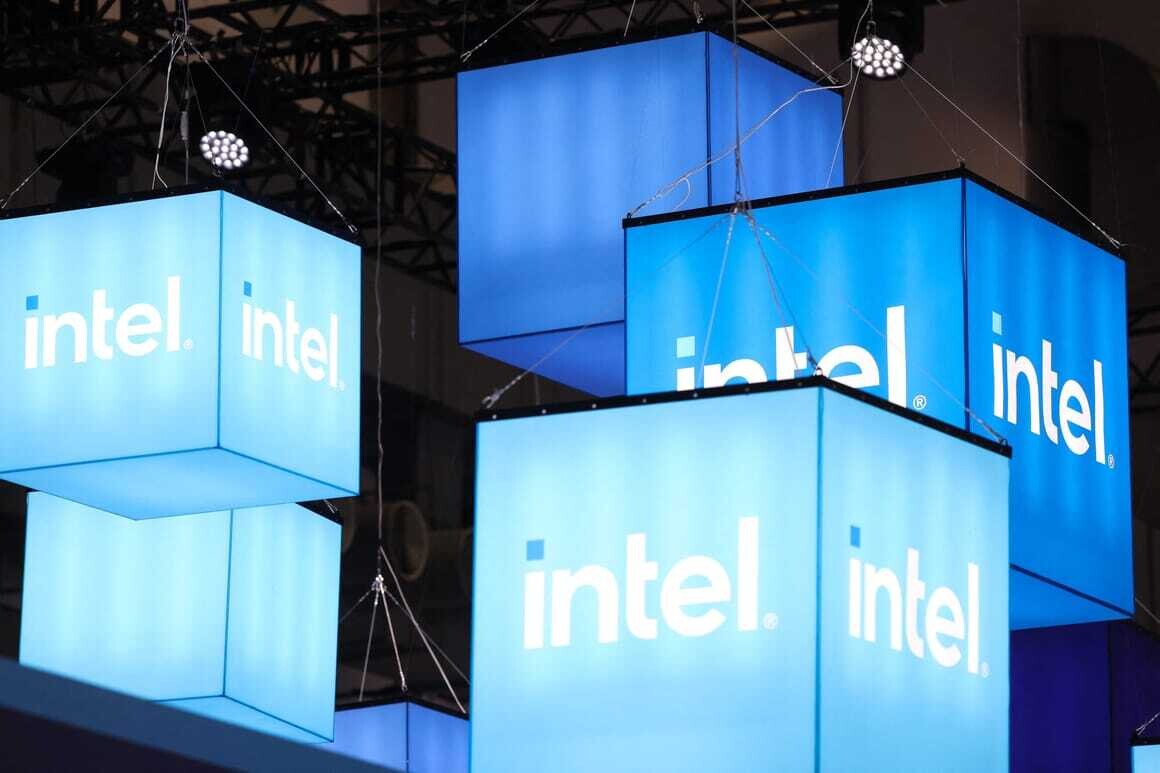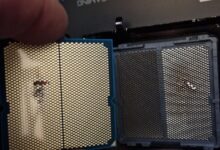Detailed Intel Kaby Lake i7 7700K Benchmarks Released
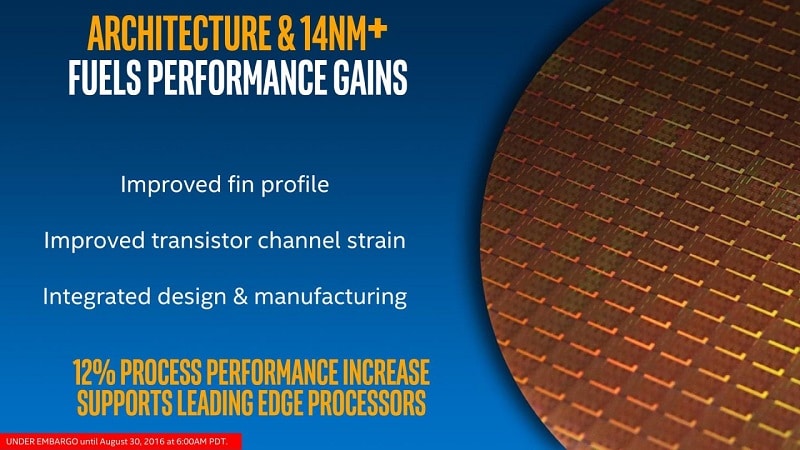
As you might expect with any new hardware launch these days, the first leaks nearly always come from various sources in China. Kaby Lake is no exception with the first leaked i7 7700K benchmarks coming out from the country. A more rare occurrence is a reputable western source being the source of the information. This time around, we have Tom’s Hardware out with their set of i7 7700K benchmarks ahead of schedule.
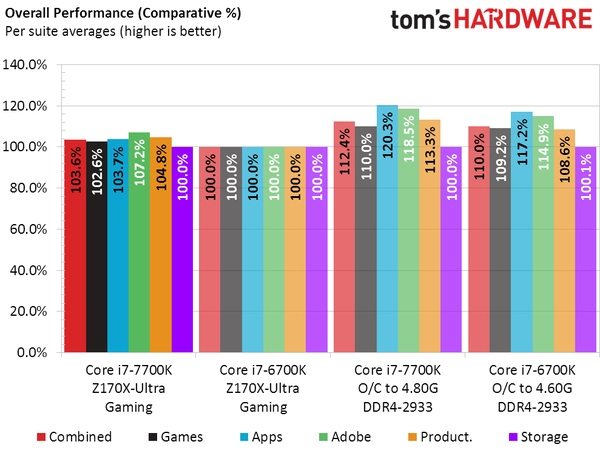
First off, we can now confirm all of the specifications and clock speeds for the new Kaby Lake flagship. Intel hinted at higher clock speeds due to the new 14nm+ process from Kaby Lake and this is evidenced by the base and clock clocks of 4.2 GHz and 4.5 Ghz respectively. That is a 200 MHz and 300 MHz increase compared to the Skylake i7 6700K and a more minor 100 MHz increase on the boost clock compared to Haswell’s i7 4790K. TDP gets a slight bump to 95W due to the higher clocks and cache stays the same at 8MB as expected.
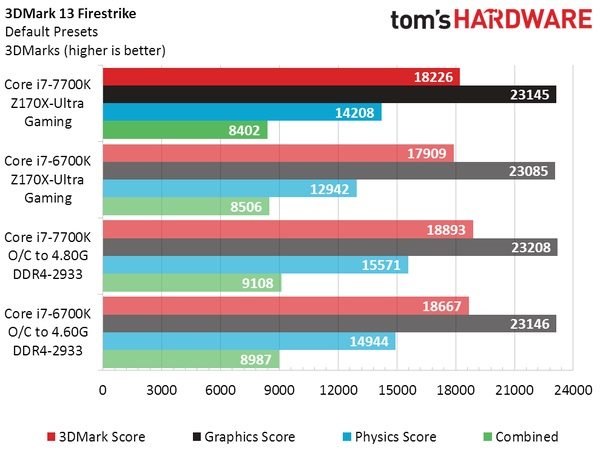
Moving on, we come to the juicy part which is all the benchmarks. As we feared and expected, Kaby Lake does not provide any noticeable IPC improvements. In both synthetic and real world application tests, the 7700K behaves exactly like an overclocked 6700K. Any performance improvements that come out are due to the higher clocks and can be matched by a 6700K clocked at the same speed.
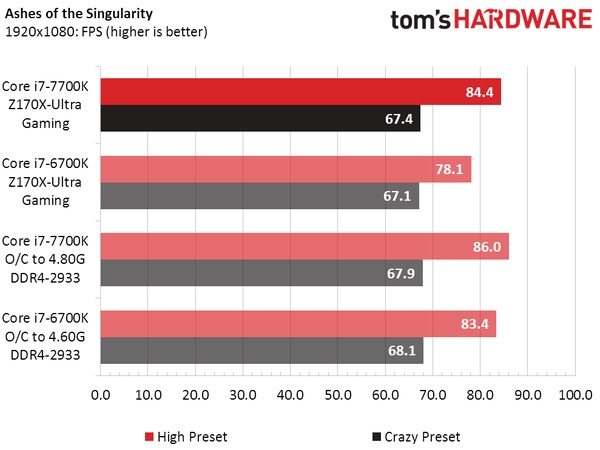
In addition to the higher clocks, Intel also suggested there would be efficiency and peak overclocking improvements. In terms of power consumption, the 7700K draws as much power as a similarly clocked 6700K, suggesting that there ae no gains at least with this sample. For peak overclocking, it appears that Kaby Lake might offer an improvement. However, it will take more time to tell if that is because of stricter binning, process improvements or just this sample in particular.
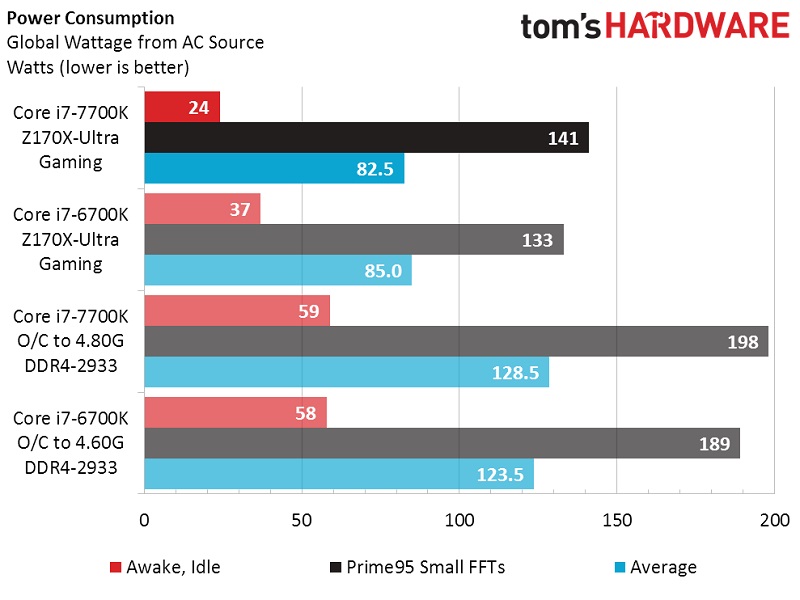
Given all of this information, we can now expect that optimization stage of PAO to simply tread water in most cases. For those of you that bought new Skylake systems, there is nothing to worry about from Kaby Lake. Most of the improvements seem to fall on the mobile and iGPU side of things this time around.










